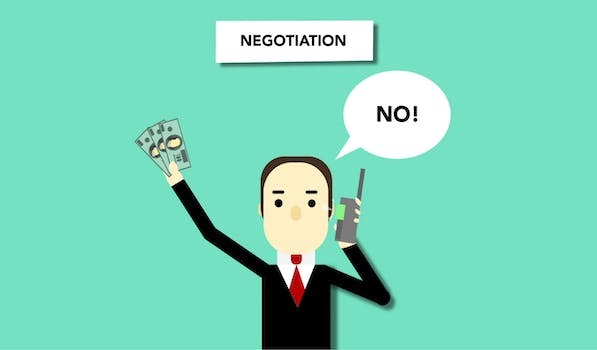How To Save Money As A Business Man
“Cut costs, increase profits: Tips for saving money as a business owner.”
Introduction
As a business owner, saving money is crucial to the success of your company. By implementing cost-saving strategies, you can increase your profits and reinvest in your business. In this article, we will discuss some effective ways to save money as a business owner.
Cutting Costs: Simple Strategies for Saving Money in Business
As a business owner, saving money is always a top priority. Whether you’re just starting out or have been in business for years, cutting costs can help you increase profits and stay competitive in your industry. Here are some simple strategies for saving money in business.
1. Negotiate with suppliers
One of the easiest ways to save money in business is to negotiate with your suppliers. Don’t be afraid to ask for discounts or better pricing, especially if you’re a loyal customer. You can also try to negotiate longer payment terms or bulk discounts. Remember, the worst they can say is no.
2. Go paperless
Printing and mailing documents can be expensive, not to mention time-consuming. Going paperless can save you money on printing costs, postage, and storage. You can use digital tools like email, cloud storage, and electronic signatures to streamline your business processes and reduce your environmental impact.
3. Use energy-efficient equipment
Energy-efficient equipment can save you money on your utility bills and reduce your carbon footprint. Look for appliances and electronics with the Energy Star label, which indicates that they meet energy efficiency guidelines set by the U.S. Environmental Protection Agency. You can also consider installing solar panels or other renewable energy sources to power your business.
4. Outsource non-core functions
Outsourcing non-core functions like accounting, IT, and marketing can save you money on salaries, benefits, and overhead. You can hire freelancers or contract with a third-party provider to handle these tasks, which can free up your time and resources to focus on your core business activities.
5. Use open-source software
Open-source software is free to use and can save you money on licensing fees and software upgrades. You can use open-source tools like WordPress, LibreOffice, and GIMP to manage your website, create documents, and edit images. Just be sure to read the licensing agreements carefully and follow the guidelines for attribution and distribution.
6. Buy used or refurbished equipment
Buying used or refurbished equipment can save you money on upfront costs and reduce your environmental impact. You can find used or refurbished equipment online or at local auctions, and you can often negotiate lower prices than buying new. Just be sure to inspect the equipment carefully and ask for a warranty or return policy.
7. Implement a telecommuting policy
Allowing your employees to work from home can save you money on office space, utilities, and equipment. You can use video conferencing, instant messaging, and other digital tools to stay connected and collaborate remotely. Just be sure to set clear expectations and guidelines for communication, productivity, and security.
In conclusion, saving money in business doesn’t have to be complicated or time-consuming. By implementing these simple strategies, you can reduce your expenses, increase your profits, and stay competitive in your industry. Remember, every dollar you save is a dollar you can reinvest in your business or use to achieve your personal and professional goals.
Maximizing Profits: Tips for Efficient Resource Management

As a business owner, it’s important to keep a close eye on your finances. One of the best ways to maximize profits is by efficiently managing your resources. Here are some tips on how to save money as a business man.
Firstly, it’s important to keep track of your expenses. This means keeping receipts and invoices, and regularly reviewing your financial statements. By doing this, you can identify areas where you may be overspending and make adjustments accordingly.
Another way to save money is by negotiating with suppliers. Don’t be afraid to ask for discounts or better payment terms. You may be surprised at how willing some suppliers are to work with you to keep your business.
When it comes to staffing, consider outsourcing certain tasks. This can be a cost-effective way to get the job done without having to hire full-time employees. For example, you could outsource your accounting or marketing needs to a freelancer or agency.
In addition, consider implementing energy-saving measures in your workplace. This could include using energy-efficient light bulbs, turning off electronics when not in use, and using natural light instead of artificial lighting. These small changes can add up to significant savings over time.
Another way to save money is by taking advantage of technology. There are many software programs and apps available that can help streamline your business operations and reduce costs. For example, you could use a project management tool to keep track of tasks and deadlines, or a cloud-based storage system to reduce the need for physical storage space.
Finally, consider offering incentives to your employees for saving money. This could include bonuses for finding ways to reduce expenses or implementing cost-saving measures. By involving your employees in the process, you can create a culture of cost-consciousness that benefits everyone.
In conclusion, there are many ways to save money as a business man. By keeping track of your expenses, negotiating with suppliers, outsourcing certain tasks, implementing energy-saving measures, taking advantage of technology, and offering incentives to your employees, you can maximize profits and ensure the long-term success of your business. Remember, every penny counts, so don’t be afraid to get creative and find new ways to save money.
Negotiating Deals: How to Get the Best Prices for Your Business Needs
As a business owner, saving money is always a top priority. One of the best ways to do this is by negotiating deals with suppliers and vendors. Negotiating can be intimidating, but with the right approach, you can get the best prices for your business needs.
First, do your research. Before entering into negotiations, make sure you know the market value of the product or service you are seeking. This will give you a baseline to work from and help you determine what a fair price is. You can also research the competition to see what prices they are offering and use that information to your advantage.
Next, be confident. Confidence is key when negotiating. If you come across as unsure or hesitant, the other party may sense weakness and be less likely to give you a good deal. Be clear about what you want and what you are willing to pay for it. Don’t be afraid to ask for what you want, but also be willing to compromise if necessary.
Another important factor in negotiating is building a relationship with the other party. This can be done by being friendly and personable, and by showing a genuine interest in their business. If the other party likes you and feels that you are invested in their success, they may be more willing to work with you and give you a better deal.
It’s also important to be prepared to walk away if necessary. If the other party is not willing to meet your needs, it may be better to look elsewhere for what you need. Don’t be afraid to say no and move on to another supplier or vendor.
When negotiating, it’s important to keep in mind that it’s not just about getting the lowest price possible. You also want to make sure that you are getting a quality product or service. Be sure to ask about warranties, guarantees, and other assurances that the product or service will meet your needs.
Finally, be willing to negotiate on other terms besides price. For example, you may be able to negotiate a longer payment term or a discount for bulk orders. Look for ways to add value to the deal beyond just the price.
In conclusion, negotiating deals is an important skill for any business owner. By doing your research, being confident, building relationships, being prepared to walk away, focusing on quality, and being willing to negotiate on other terms, you can get the best prices for your business needs and save money in the long run. Remember, it’s not just about getting the lowest price possible, but also about getting a quality product or service that meets your needs.
Going Green: Eco-Friendly Practices that Save Money and Benefit the Environment
As a business owner, it’s important to not only focus on making a profit but also to consider the impact your business has on the environment. Going green not only benefits the environment but can also save you money in the long run. Here are some eco-friendly practices that can help you save money while reducing your carbon footprint.
1. Switch to Energy-Efficient Lighting
One of the easiest ways to save money and reduce your energy consumption is by switching to energy-efficient lighting. LED bulbs use up to 80% less energy than traditional incandescent bulbs and last up to 25 times longer. While the initial cost of LED bulbs may be higher, the long-term savings on your energy bill will make up for it.
2. Use Renewable Energy Sources
Another way to reduce your carbon footprint and save money is by using renewable energy sources such as solar or wind power. Installing solar panels or wind turbines may require an initial investment, but the long-term savings on your energy bill can be significant. Additionally, many governments offer incentives and tax credits for businesses that use renewable energy sources.
3. Implement a Recycling Program
Implementing a recycling program in your business can not only reduce waste but also save you money on disposal fees. By recycling paper, plastic, and other materials, you can reduce the amount of waste your business produces and potentially earn money by selling recyclable materials.
4. Use Energy-Efficient Appliances
Using energy-efficient appliances such as refrigerators, air conditioners, and computers can also help you save money on your energy bill. Look for appliances with the ENERGY STAR label, which indicates that they meet energy efficiency guidelines set by the U.S. Environmental Protection Agency.
5. Encourage Telecommuting
Encouraging employees to work from home can not only reduce your business’s carbon footprint but also save you money on office space and utilities. With the rise of technology, many jobs can be done remotely, allowing employees to work from home or other remote locations.
6. Reduce Paper Usage
Reducing paper usage in your business can not only save you money on paper and printing costs but also reduce your environmental impact. Encourage employees to use digital documents and communicate electronically instead of printing out paper copies.
7. Use Eco-Friendly Cleaning Products
Using eco-friendly cleaning products can not only reduce your business’s environmental impact but also save you money on cleaning supplies. Many eco-friendly cleaning products are made from natural ingredients and are just as effective as traditional cleaning products.
In conclusion, going green can not only benefit the environment but also save you money in the long run. By implementing eco-friendly practices such as using energy-efficient lighting, renewable energy sources, recycling, and reducing paper usage, you can reduce your business’s carbon footprint and save money on your energy bill and other expenses. Encouraging employees to work from home and using eco-friendly cleaning products can also help you save money while reducing your environmental impact. By making small changes in your business practices, you can make a big difference for the environment and your bottom line.
Investing Wisely: Making Smart Financial Decisions for Long-Term Savings
As a business owner, saving money is always a top priority. Whether you’re just starting out or have been in business for years, there are always ways to cut costs and invest wisely for long-term savings. Here are some tips on how to save money as a business man.
First and foremost, it’s important to have a budget. This may seem obvious, but many business owners overlook the importance of a budget. A budget will help you keep track of your expenses and ensure that you’re not overspending in any one area. It will also help you identify areas where you can cut costs.
One way to cut costs is to negotiate with your suppliers. Many suppliers are willing to offer discounts or lower prices if you’re a loyal customer or if you’re willing to buy in bulk. Don’t be afraid to ask for a better deal – the worst they can say is no.
Another way to save money is to invest in energy-efficient equipment. This may require an upfront investment, but it will save you money in the long run by reducing your energy bills. Look for equipment with the Energy Star label, which indicates that it meets energy efficiency standards set by the U.S. Environmental Protection Agency.
When it comes to investing, it’s important to do your research. Don’t just invest in the first opportunity that comes your way – take the time to research different options and choose the one that’s right for you. Consider factors such as risk, return on investment, and the length of the investment.
One option for investing is to put your money into a high-yield savings account. These accounts offer higher interest rates than traditional savings accounts, which means you’ll earn more money on your savings. However, be sure to read the fine print and understand any fees or restrictions associated with the account.
Another option for investing is to put your money into stocks or mutual funds. This can be a more risky option, but it also has the potential for higher returns. Again, do your research and choose investments that align with your financial goals and risk tolerance.
Finally, it’s important to stay organized and keep track of your finances. Use accounting software or hire an accountant to help you keep track of your income and expenses. This will help you identify areas where you can cut costs and make smarter financial decisions.
In conclusion, saving money as a business man requires a combination of budgeting, negotiating, investing, and staying organized. By following these tips, you can make smart financial decisions that will lead to long-term savings and success for your business. Remember to always do your research and choose investments that align with your financial goals and risk tolerance. With a little effort and planning, you can save money and grow your business at the same time.
Conclusion
Conclusion: As a business man, saving money is crucial for the success of your business. By implementing strategies such as budgeting, negotiating with suppliers, and reducing unnecessary expenses, you can effectively save money and increase your profits. It is important to regularly review your financial statements and make adjustments as needed to ensure that your business remains financially stable. With careful planning and smart decision-making, you can successfully save money and grow your business.





